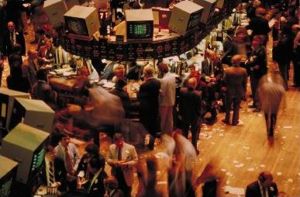Difference between revisions of "Economics"
JLauttamus (Talk | contribs) (Undo revision 712156 by Imperial25 (Talk)) |
(Why we should study economic institutions) |
||
| Line 5: | Line 5: | ||
C. Lowell Harriss, a professor of economics at Columbia, said that economics is the study of the allocation of scarce goods and services.<ref> [http://www.nytimes.com/2008/07/13/business/13every.html?em&ex=1216440000&en=a9a6d3e97f11545f&ei=5087%0A Lessons in Love, by Way of Economics]</ref> | C. Lowell Harriss, a professor of economics at Columbia, said that economics is the study of the allocation of scarce goods and services.<ref> [http://www.nytimes.com/2008/07/13/business/13every.html?em&ex=1216440000&en=a9a6d3e97f11545f&ei=5087%0A Lessons in Love, by Way of Economics]</ref> | ||
| + | |||
| + | ==Why we should study it== | ||
| + | |||
| + | * Feelings pertaining to the alleged chaos of economic activity rest on ignorance of the knowledge economics provides of the benevolent role of such institutions as the [[division of labor]], [[private ownership]] of the [[means of production]], [[exchange and money]], [[economic competition]], and the [[price system]]. [http://www.capitalism.net/Capitalism/Economics%20and%20Capitalism.htm] | ||
== Issues in economics == | == Issues in economics == | ||
Revision as of 23:57, December 26, 2009

Economics is the study of opportunity. More specifically, economics is the study of the opportunities made possible by the transfer of goods and services. Economics attempts "to explain the way in which individuals interact with one another, to use their limited resources to satisfy their alternative ends." [1] It is a social science, concerned with how people produce, distribute, and consume. Governments can be classified by their economic policy. The U.S. Constitution provides basic protections for private property that are the foundation of American economic policy.
C. Lowell Harriss, a professor of economics at Columbia, said that economics is the study of the allocation of scarce goods and services.[1]
Contents
Why we should study it
- Feelings pertaining to the alleged chaos of economic activity rest on ignorance of the knowledge economics provides of the benevolent role of such institutions as the division of labor, private ownership of the means of production, exchange and money, economic competition, and the price system. [2]
Issues in economics
Economics deals with a large number of issues:
- Theory of value: What are things worth? How do we compute value?
- Economic justice: How are resources distributed in society? What is the ideal distribution?
- Economic prosperity: Which policies encourage economic growth and development?
- Economic prediction: How can we use economic information from today to predict future results? Which econometrics are leading indicators?
Disciplines within economics
Economics is a very broad discipline, and involves the following other disciplines as well:
- Moral philosophy: How ought a society produce and distribute goods and services?
- Psychology: What principles underlie human economic decision-making?
- Mathematics: What mathematical models can predict economic outcomes?
- Ecology: How and in what quantities do households consume goods?
Branches of economics
- Microeconomics: the study of economic decisions of firms and households acting in markets.
- Macroeconomics: the study of aggregate economic decisions and the results of those decisions in a local, national, or world economy.
History of economics
Main article: History of economics
Economic thought originated with the rise of the state. Classical economics, or the long-run model, was articulated by Adam Smith and has since fomented the rise of free-market capitalism in economic thought.[2]